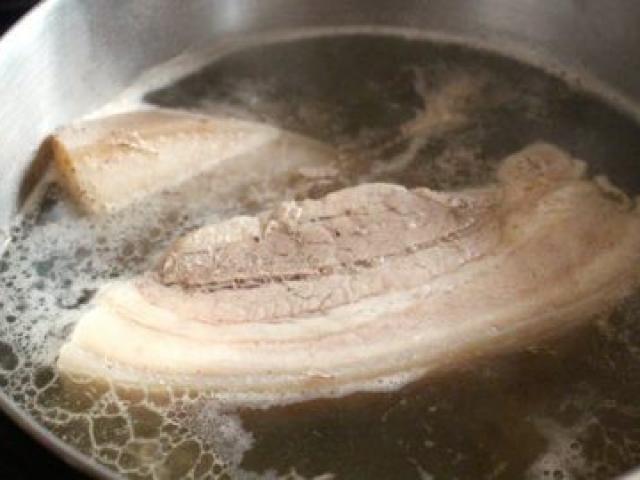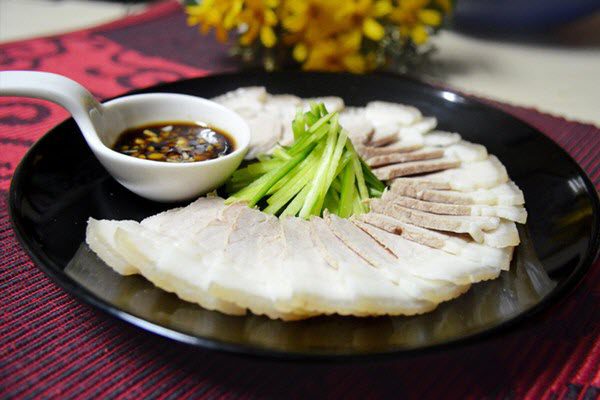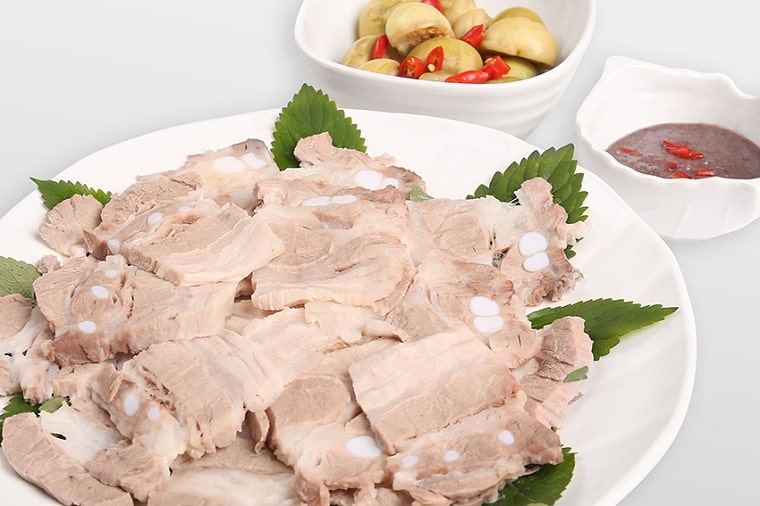Tips for choosing delicious pork
Delicious pork will have a layer of fat and lean meat that are tightly attached, not loose or separated. The fat layer should be about 1 finger joint thick (1.5 – 2 cm). If there is too much lean meat while the fat and skin are scarce, it is likely that the pork has been treated with growth enhancers.
When shopping, you should observe the color of the meat. This is an effective way that does not take too much time. High-quality pork will have lean meat that varies from light pink to dark red, while the fat layer is white or slightly creamy.
If possible, you should smell the meat. Good pork has a distinctive aroma, without any unpleasant odor or greasiness.

Tips for boiling delicious pork
To remove any unpleasant odor from pork and ensure safety, you should have a separate container for washing pork to avoid mixing it with raw utensils, fruits, and vegetables. Soak the pork in salt water for 5 – 10 minutes to allow any impurities in the meat to gradually come out.
Then, rinse the meat with clean water. Do not put it directly into boiling water. Place a pot of water on the stove and slowly heat it up. This way, any impurities in the meat will be released, leaving the meat clean and odor-free. Cook the meat for 2 – 3 minutes, then remove it from the pot.

Prepare another pot of water and put the meat in when the water is still cold to prevent the meat from being stained with blood. You can add a little salt to make the meat more flavorful. Boil the meat for 20 – 30 minutes until it is fully cooked and delicious, but still tender.
When boiling the meat, the water should cover the pieces of meat to prevent them from turning black. Additionally, add some shallots or onions, and a few slices of ginger to eliminate the pork’s smell.

You should not cut the meat into small pieces before boiling as it will lose its natural sweetness. Additionally, remember to skim off the foam regularly to keep the broth clean and odor-free.
After the meat is fully cooked, put it in a bowl of cold water to maintain its firmness and prevent discoloration.
How to Prepare Deliciously Crunchy and Aromatic Fried Spring Rolls – 6 Tips
Adding a savory twist to your meal, fried spring rolls are now being served with a golden and even crust that’s both crispy and fluffy. Experience a delicious mix of sweetness and fragrance from the flavorful filling.





































